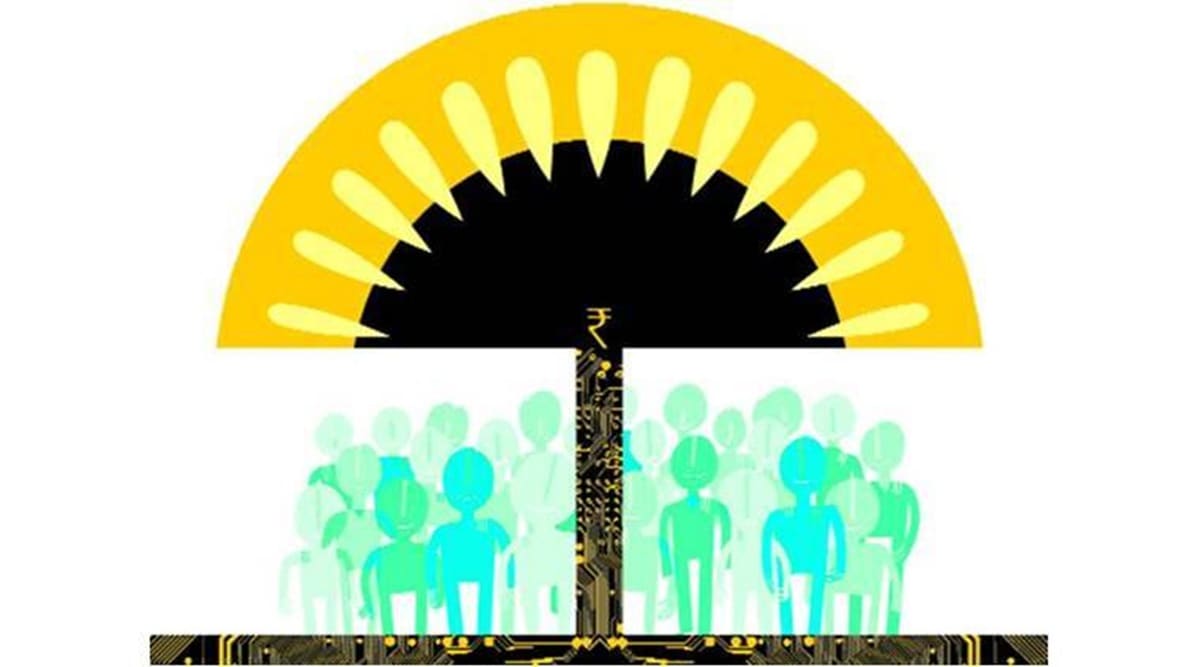Pratap Bhanu Mehta writes: It reflects a nation with diminishing prospects for everyone, encouraging them to reach into the narrowest-minded conceptions of identity and calling it social justice.
Both secularism and social justice have become farcical ideas. If you want to see a new and vivid demonstration of this, study the new Brahmin welfare schemes instituted by southern states. The websites of the Telangana Brahmin Samkshema Parishad, or andhrabrahmin.ap.gov.in, or the Karnataka State Brahmin Development Board have a tale to tell. Each of them has created or supported a separate undertaking for Brahmin welfare. Each of them has a similar template: Scholarships, support for overseas education, funds for starting enterprises, support for Brahmin self-help groups, money for coaching, and a range of other benefits. The state ought to help the poor of all communities. But the way in which the proposed schemes are framed is a grotesque perversion of constitutional values. They are a reactionary reversion to the worst aspects of caste.
The Andhra Pradesh government has a Veda Vyasa Scheme for Vedic Education. Let us, for a moment, put aside the question of whether there is a secular pedagogical argument for the state supporting Vedic education. But who is eligible for this education? Students should belong to the Brahmin community by birth. Similarly, the parallel schemes in Telangana and Karnataka require Brahmin caste certificates to be eligible for their schemes. Can you think of anything more grotesque than the idea that in the 21st century the state provides support to a profession whose eligibility is determined by birth? If Vedic education is an unalloyed good, why should it not be open to all, subject to conduct rules? How can the state discriminate, and confine it to Brahmins identified by birth? This cannot pass any constitutional smell test.
The semiotics get worse. The brahminparishad.telangana.gov.in announces proudly that “BRAHMIN stands for Broad and Brilliant in Thinking, Righteous and Religious in Livelihood, Adroit and Adventurous in Personality, Honesty and Humanity in Quality, Modesty and Morality in Character, Innovation and Industry in Performance and Nobility and Novelty in Approach.” The form available for issuing a Brahmin caste certificate in Telangana asks for Gothram details, as if the state were some pandit in Haridwar. There is, of course, a colossal irony, or perhaps deep historical ignorance, in the Andhra Scheme being named after Veda Vyasa. Veda Vyasa would not have counted as a Brahmin eligible under this scheme. At least the Mahabharata is a bit more embarrassed about designating Brahminhood by birth rather than by conduct. But here is a modern secular state going with caste birthright all the way.
No one can deny the fact that some Brahmins are impoverished and need help. But why make a scheme available on caste basis? For example, there is a proposed BEST (Brahmin Entrepreneurship of Telangana) scheme which provides entrepreneurial support to those with income of less than Rs 2 lakh. Worthy goal. But presumably Article 14 would require that anyone whose income is less than Rs 2 lakh should be eligible for this, especially if there is no additional basis for classification based on discrimination. Why allocate funding for IAS coaching, self-help group formation, or funding for overseas education, based on being a Brahmin? Karnataka state is now giving financial incentives for brides for Brahmins, who are apparently finding it difficult to find them. This is a gross perversion of both Vedic and constitutional values.
The argument will be that if “Dalit” can be used as the basis of classification, why not “Brahmin”? But this is exactly the perversion of the social justice discourse that was set in motion post Mandal, where the question of deeply entrenched historical discrimination was confused with backwardness and poverty in general. No one can deny the pervasive reality of caste in India. But it does not follow that, except in the case of Dalits or similar exceptional cases, addressing backwardness by the state requires using caste as a criteria. Almost all of the goods that are sought to be provided in these schemes to help the poor and backward — preferential admissions, scholarships, income support, housing, education, health, loans — can cover all those who need to be covered without invoking caste.
But think of the regression this represents in politics. Recognising caste to overcome discrimination was one thing. But entrenching it as a compulsory identity, certified by the state, and reproducing birth-based entitlements are a perversion of social justice. Politics and public policy is being reduced to jati-based mobilisation in the most absurd way. Dalits were poor on account of their caste, which is why caste was recognised. Now the state wants to ensure that all who are poor are permanently stamped with their caste by an official seal. Do you have income below Rs 2 lakh? Please get a Brahmin certificate to avail benefits. Can’t find a bride? Well, if you are Brahmin, we can help. Karnataka, Andhra and Telangana are supposedly India’s more progressive states. They do well in public goods provision and incorporation of Dalits. But it looks as if chief ministers, across political parties, see themselves as old Hindu monarchs, lording over a caste order and distributing benefits by caste. There is no emancipatory vision here of overcoming caste. That Lohiaite idea, that you have to go through caste to overcome it, is turning out to be a piece of sociological wishful thinking.

The free for all that is ensuing for reconfiguring caste-based benefits, the demands of local domicile reservation, are signs of pessimism about the economy. Much heat will be generated about how to distribute the current and shrinking pie of jobs and resources along jati lines. But no one is getting seriously upset about the fact that the pie is not growing as fast as we need it to. The benefits for Brahmins may seem like a reductio ad absurdum of our politics, a little farce. But behind it is a great tragedy, of a nation with diminishing prospects for everyone, encouraging them to reach into the narrowest-minded conceptions of identity and calling it social justice.
This column first appeared in the print edition on September 8, 2021 under the title ‘The new Brahamanism’. The writer is contributing editor, The Indian Express
Source: Read Full Article


